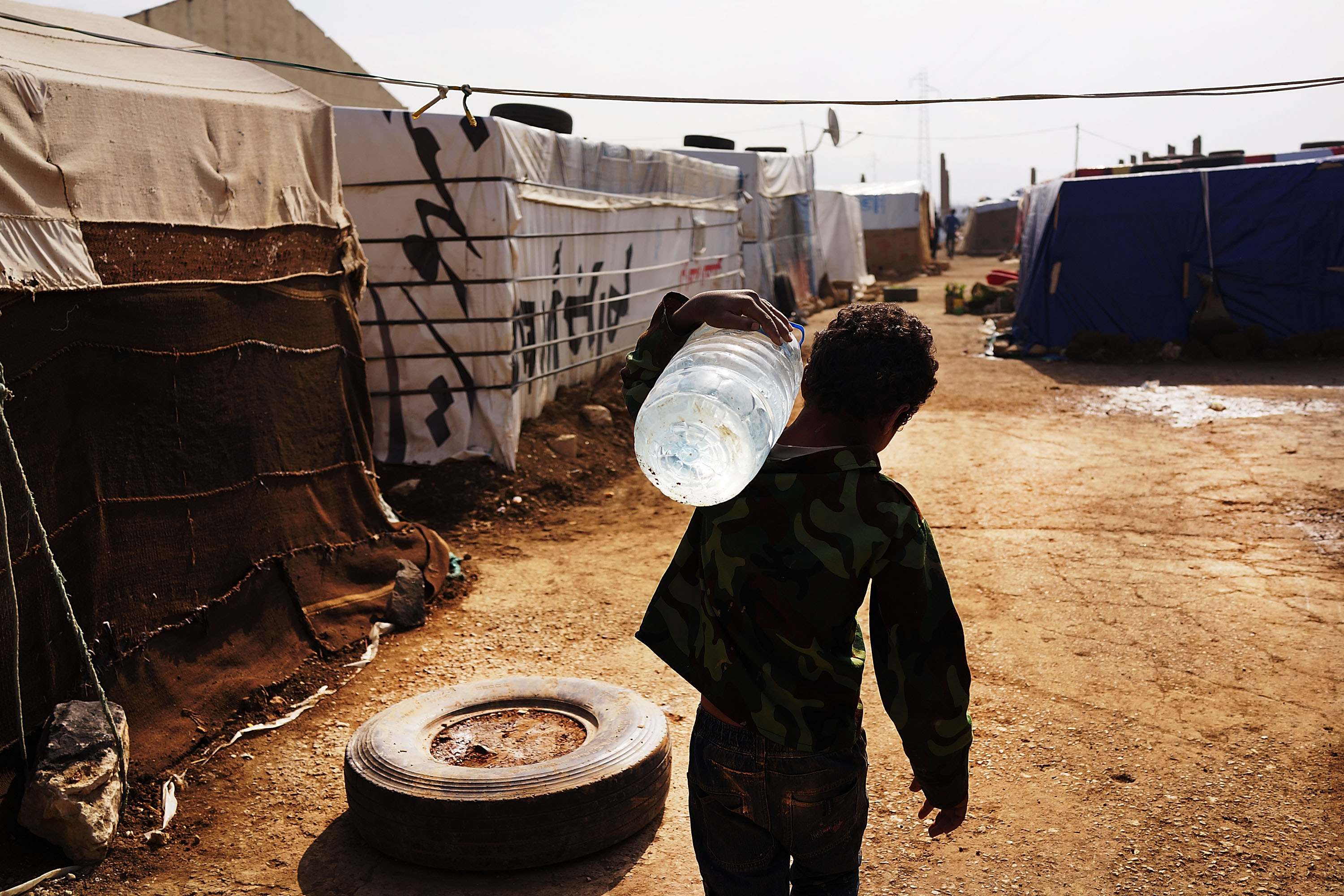U.N. finds Syrian forces intentionally bombed a civilian water source, constituting a war crime


A free daily email with the biggest news stories of the day – and the best features from TheWeek.com
You are now subscribed
Your newsletter sign-up was successful
On Tuesday, the United Nation's Independent International Commission of Inquiry on Syria issued a report finding that the Syrian air force intentionally bombed a civilian water source in December in what constitutes a war crime, Reuters reports. The Syrian government had claimed at the time that the spring was contaminated, although the U.N. found no evidence indicating such claims were true.
By destroying the spring outside Damascus, the air force cut off water for 5.5 million people. "While the presence of armed group fighters at [the] spring constituted a military target, the extensive damage inflicted to the spring had a devastating impact on more than five million civilians in both government- and opposition-controlled areas who were deprived of regular access to potable water for over one month," the commission said. "The attack amounts to the war crime of attacking objects indispensable for the survival of the civilian population, and further violated the principle of proportionality in attacks."
The commission has found multiple instances of war crimes since July 2016, including the Syrian air force's deliberate bombing of a humanitarian convoy in September. The Syrian civil war has been "characterized by a complete lack of adherence to the norms of international law," the United Nations has found.
The Week
Escape your echo chamber. Get the facts behind the news, plus analysis from multiple perspectives.

Sign up for The Week's Free Newsletters
From our morning news briefing to a weekly Good News Newsletter, get the best of The Week delivered directly to your inbox.
From our morning news briefing to a weekly Good News Newsletter, get the best of The Week delivered directly to your inbox.
A free daily email with the biggest news stories of the day – and the best features from TheWeek.com
Jeva Lange was the executive editor at TheWeek.com. She formerly served as The Week's deputy editor and culture critic. She is also a contributor to Screen Slate, and her writing has appeared in The New York Daily News, The Awl, Vice, and Gothamist, among other publications. Jeva lives in New York City. Follow her on Twitter.
-
 5 calamitous cartoons about the Washington Post layoffs
5 calamitous cartoons about the Washington Post layoffsCartoons Artists take on a new chapter in journalism, democracy in darkness, and more
-
 Political cartoons for February 14
Political cartoons for February 14Cartoons Saturday's political cartoons include a Valentine's grift, Hillary on the hook, and more
-
 Tourangelle-style pork with prunes recipe
Tourangelle-style pork with prunes recipeThe Week Recommends This traditional, rustic dish is a French classic
-
 British warship repels 'largest Houthi attack to date' in the Red Sea
British warship repels 'largest Houthi attack to date' in the Red SeaSpeed read Western allies warn of military response to Iranian-backed Yemeni rebels if attacks on ships continue
-
 Houthi rebels claim Red Sea ship attacks
Houthi rebels claim Red Sea ship attacksspeed read Iran-backed Yemeni group vows to escalate aggression towards Israel-linked vessels in revenge for Gaza war
-
 Israel plans next phase of Gaza war as first hostages released
Israel plans next phase of Gaza war as first hostages releasedSpeed read After four-day ceasefire 'we will not stop' until destruction of Hamas, says Israel
-
 Mob storms Russian airport 'looking for Jews'
Mob storms Russian airport 'looking for Jews'Speed Read Plane from Israel surrounded by rioters chanting antisemitic slogans after landing in Russia's Dagestan region
-
 Tuberville's military promotions block is upending lives, combat readiness, 3 military branch chiefs say
Tuberville's military promotions block is upending lives, combat readiness, 3 military branch chiefs saySpeed Read
-
 Ukraine's counteroffensive is making incremental gains. Does it matter in the broader war?
Ukraine's counteroffensive is making incremental gains. Does it matter in the broader war?Speed Read
-
 US commissions first-ever Navy ship in a foreign port
US commissions first-ever Navy ship in a foreign portSpeed Read
-
 British spy chief, Wagner video suggest Prigozhin is alive and freely 'floating around'
British spy chief, Wagner video suggest Prigozhin is alive and freely 'floating around'Speed Read
